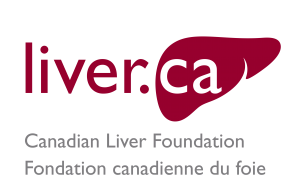National Organ and Tissue Donation Awareness Week

National Organ and Tissue Donation Awareness Week
April 18 to 24, 2021 is National Organ and Tissue Donation Awareness Week, an opportunity to encourage Canadians to have important conversations with their friends and loved ones about their decision to donate to ensure that each of our organ donation wishes and decisions are understood.
 Liz Venderbos was career-focussed, working an extremely busy job, travelling almost weekly from her home base of Winnipeg, MB.
Liz Venderbos was career-focussed, working an extremely busy job, travelling almost weekly from her home base of Winnipeg, MB.
A driven professional, mother, wife, sister, daughter and friend, in May 2013, Liz added “caretaker” to her list of titles when her mother was diagnosed with terminal cancer – news that shook her family’s world. As Liz’s sister had previously passed away from colon cancer, her family was all too familiar with the journey and emotional weight of serious illness.
Liz was now taking care of her mother’s health needs and taking care of her elderly father – the stress was immense and the needs of everyone endlessly stretching her bandwidth. Because of her late sister’s colon cancer, Liz went for annual colonoscopies, but with the never-ceasing demands on her time, she called her doctor to postpone her usual check, but her doctor wouldn’t take “no” for an answer and pushed her to come in for her test.
In June, Liz went for her colonoscopy. Her doctor took one look at her, and asked her some very specific questions about irregularities and changes when going to the bathroom and the colour of her urine (Liz had been experiencing significant changes, and noted that her urine had been dark – almost the colour of cola). Based on Liz’s answers, he pointedly asked her, “and are you itchy all over?”. With that, Liz began to cry – she knew that her recent health changes, which she had chalked up to the immense stress she’d been under, were more than stress. Following her colonoscopy, her doctor ordered a series of tests.
In September of that year, Liz’s mother passed away. Despite the weight of her mother’s death and caring for her mourning father, Liz was still pushing through and as busy as ever with work. And after what felt like endless tests, CT scans, bloodwork and ultrasounds, Liz was getting more and more sick, without any answers.
 In March 2014, Liz was called into her doctor’s office. Within seconds of sitting down, her doctor said, “you have liver disease.” In the moments following, Liz’s world shrunk and everything went blank. A few days later she was admitted to the hospital for a few nights of tests and connected with a liver specialist.
In March 2014, Liz was called into her doctor’s office. Within seconds of sitting down, her doctor said, “you have liver disease.” In the moments following, Liz’s world shrunk and everything went blank. A few days later she was admitted to the hospital for a few nights of tests and connected with a liver specialist.
Liz was diagnosed with primary biliary cholangitis (PBC), previously known as primary biliary cirrhosis, an autoimmune disease of the liver that results from a slow, progressive destruction of the small bile ducts of the liver, causing bile and other toxins to build up in the liver, a condition called cholestasis.
For almost a year, Liz managed to continue to live her life mostly as she had been, and maintained a MELD Score (Model for End-Stage Liver Disease) score of 16 – a score that kept her from being in need of a transplant. But in May 2015, following her father’s death, Liz found out that her MELD Score had gone from 16 to 26, putting her on the deceased donor list.
Liz’s family and friends went into action and began doing living donor tests, however, as only one living donor can be tested at a time, awaiting each test’s results felt like years going by. Her brother and best friend both tested, but were ineligible. Meanwhile, Liz was getting significantly more sick.
In November 2015, Liz, extremely ill, thin, unable to eat much, was surprised by her friends (and 700 guests) with a fundraiser to help support her family’s ever-growing expenses due to constant travel from Winnipeg to Toronto for tests and medical appointments.
 Then one day, Liz’s son Ty, who was 21 at the time, spoke up and said he wanted to be tested. At first, Liz refused, but he insisted. In December of that year, Liz and Ty travelled to Toronto for Ty to undergo tests. When they were back at the airport waiting to board their flight home to Toronto, Ty received a phone call – he was a match.
Then one day, Liz’s son Ty, who was 21 at the time, spoke up and said he wanted to be tested. At first, Liz refused, but he insisted. In December of that year, Liz and Ty travelled to Toronto for Ty to undergo tests. When they were back at the airport waiting to board their flight home to Toronto, Ty received a phone call – he was a match.
After an extensive series of physical and psychological assessments, Liz and Ty were scheduled for a living donor liver transplant – Ty was going to give two-thirds of his liver to his mother. What they didn’t know is that he saved her life just in time – when they tested Liz’s liver after surgery, they found out she had only about three months left to live.
Prior to becoming ill, Liz gave little thought to her liver health – and although she noticed a shift in her health, she chalked it up to stress: from work, from her ill mother, from the demands of daily life. Like so many, especially those who take care of others, Liz hit snooze on her health alarms.
“Don’t ignore the signs,” said Liz. “Everyone knows their body – you recognize certain changes. Question them if they’re not usual. Go to your doctor immediately and ask – push for tests. Don’t waste time and put it off.”
Before Liz knew she was ill, she went away on an annual trip with a group of close friends – out at a cabin in the woods, the friends would go on hikes and engage in deep conversation. One afternoon, they all tackled answering the question, “what would you do if you died tomorrow?” At the time, Liz was focused on her career growth, and her answer was professionally-driven. But now, she had a new perspective and lease on life, “You don’t lie on your deathbed and think, ‘I wish I would have worked harder’.”
 In 2019, there were 526 people on the waiting list for a liver transplant, and unfortunately, the pandemic has had an impact on registration. In-person registrations and awareness campaigns were halted because of COVID-19 restrictions, and registrations are down 39 per cent from 2019. Not everyone is able to receive a donation from a living donor, therefore many Canadians waiting for transplants are relying on registered organ donors and on families honouring their loved one’s wishes to donate organs and tissues after death. April 18-24, 2021 is National Organ and Tissue Donation Awareness Week, a time to celebrate donors and donor recipients while raising awareness about the critical need for more donors across Canada. You can make a difference and encourage your loved ones to become a registered organ and tissue donor today. Become a registered organ and tissue donor today.
In 2019, there were 526 people on the waiting list for a liver transplant, and unfortunately, the pandemic has had an impact on registration. In-person registrations and awareness campaigns were halted because of COVID-19 restrictions, and registrations are down 39 per cent from 2019. Not everyone is able to receive a donation from a living donor, therefore many Canadians waiting for transplants are relying on registered organ donors and on families honouring their loved one’s wishes to donate organs and tissues after death. April 18-24, 2021 is National Organ and Tissue Donation Awareness Week, a time to celebrate donors and donor recipients while raising awareness about the critical need for more donors across Canada. You can make a difference and encourage your loved ones to become a registered organ and tissue donor today. Become a registered organ and tissue donor today.



